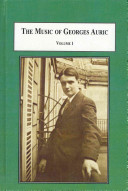The Roud Folk Song Index
 The Roud Folksong Index is Steve Roud’s monumental labor of love, now supported and hosted by the Vaughan Williams Memorial Library in London. It guides users to published and manuscript folk song scores, texts, and recordings. By searching the index, researchers can use the provided information to find the music and/or text of folk songs in a library collection.
The Roud Folksong Index is Steve Roud’s monumental labor of love, now supported and hosted by the Vaughan Williams Memorial Library in London. It guides users to published and manuscript folk song scores, texts, and recordings. By searching the index, researchers can use the provided information to find the music and/or text of folk songs in a library collection.
The index now includes over 191,000 references to songs that have been collected from oral tradition in the English language. Its database, searchable by one or multiple fields, includes fields for song title, tune name, first line of text, source type (broadside, book, etc.), source reference, bibliography reference ID (with a link to complete bibliographic information), previous source, performer, place collected, date collected, collector, contents (text and/or music, number of verses), date added, Roud number, other number, subjects, broadside printer, broadside location, notes and Roud ID number.
Probably the largest English-language folk song index in the world to date, this online source is indispensable for those searching for written or recorded versions of traditional songs from the English-speaking world. It is freely available on the Vaughan Williams Memorial Library website.


